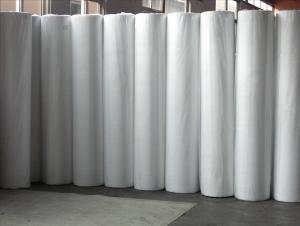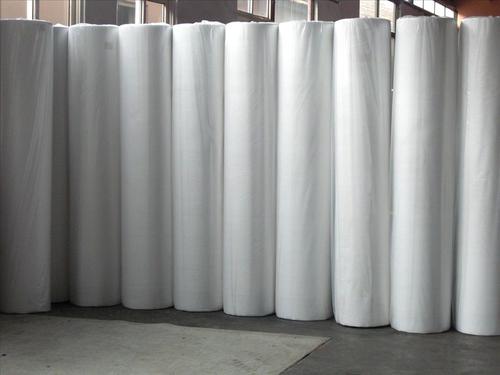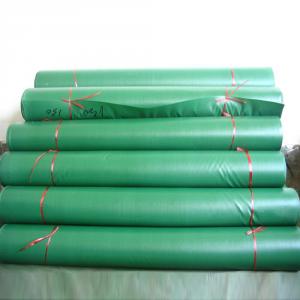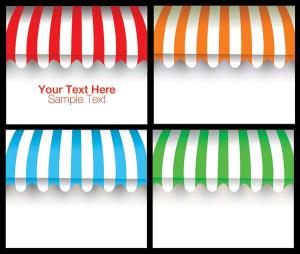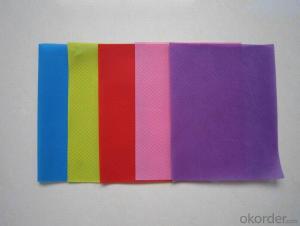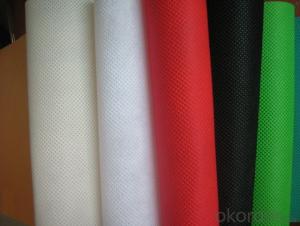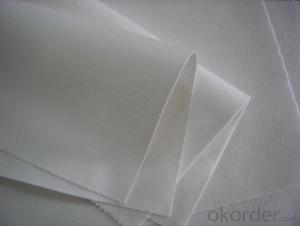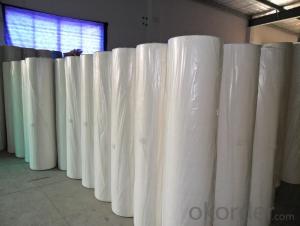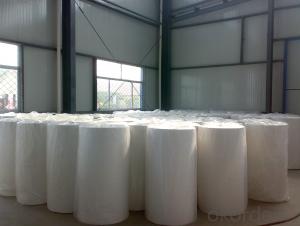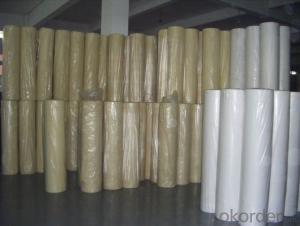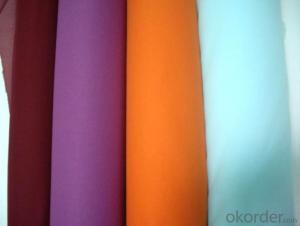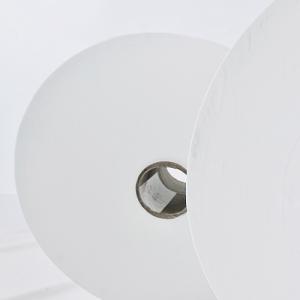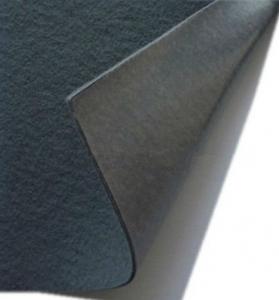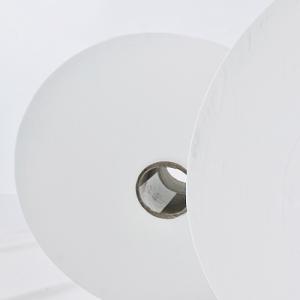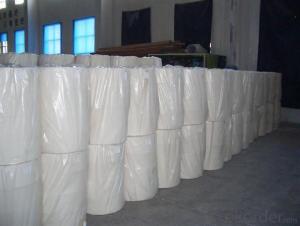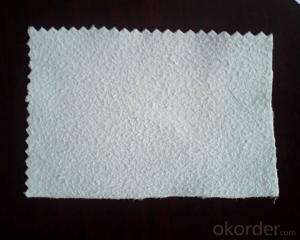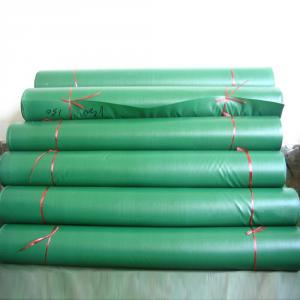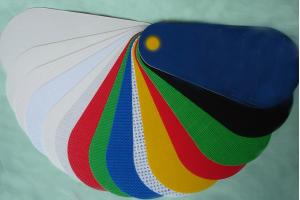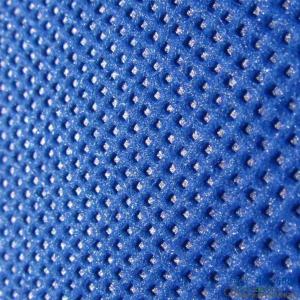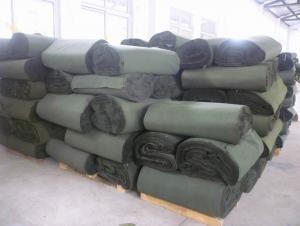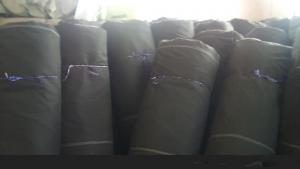Durable and reusedlaminated non woven fabric/polyester fabric roll/waterproof car carpet
- Loading Port:
- Shanghai
- Payment Terms:
- TT OR LC
- Min Order Qty:
- 1000 roll
- Supply Capability:
- 10000 roll/month
OKorder Service Pledge
OKorder Financial Service
You Might Also Like
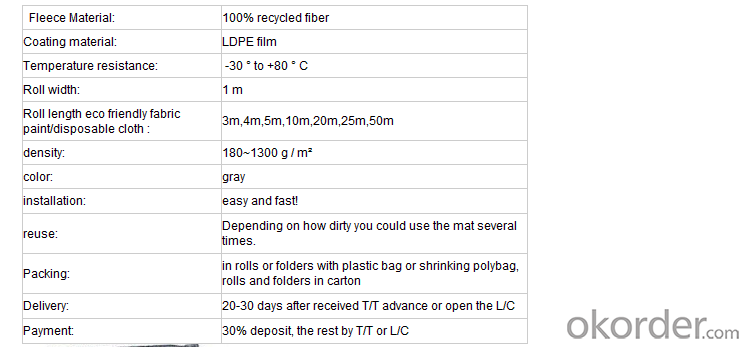 PP non woven weed control mat is made of environmentally friendly raw materials, pp spunbond nonwoven fabric. It used to prevent the growth of weed, without the use of potentially dangerous chemical sprays or labor intensive hoeing. Once installed, weed mat will continue providing protection for years without maintenance.
PP non woven weed control mat is made of environmentally friendly raw materials, pp spunbond nonwoven fabric. It used to prevent the growth of weed, without the use of potentially dangerous chemical sprays or labor intensive hoeing. Once installed, weed mat will continue providing protection for years without maintenance.
They are permeable fabrics, which allow air, water and nutrients to pass through, and designed to block out the sun to reduce photosynthesis and stop weed growth.
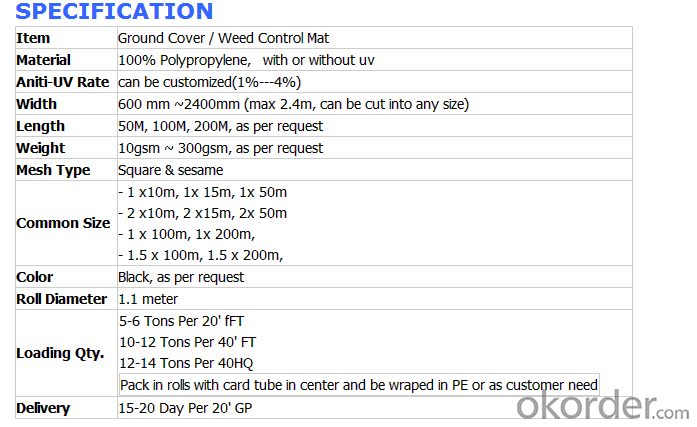
The use of landscaping fabrics has become extremely popular in recent years for many reasons:
1. Leisure time is maximised - the need for weeding and on-going maintenance is minimised
2. Environmentally friendly - no need for chemical based weed killers
3. Promotes healthier plants - it allows the soil to breath and water to permeate
We offer different types of weed control fabrics to suit all applications and budgets.
1. Available in a range of sizes & materials to suit various applications from small to large landscaping projects, in both commercial and domestic situations.
2. All our landscape fabrics are UV stabilised
3. Ideal for use under paths, patios, decking, paving, bark mulch, gravel etc.
FEATURES:
1. Weed suppressant and drainage control landscaping fabric
2. Spun bonded non-woven fabric – will not fray when cut
3. Easy to use
4. Environmentally friendly
5. Allows water, air and nutrients through, suppressing weeds without the use of chemicals
6. Good alternative to Plantex® where cost is a factor
7. UV Stabilised
8. Reduces the level of watering required due to the slower rate of water evaporation
FUNCTION:
1. Cover crops in the ground surface,prevent weeds and against the insect
2. Controlling soil humidity and the temperature
3. Does not affect the growth of the crops
4. Protects plants from harmfully solar radiation
5. Air permeability, water permeability help crops growth.
6. Mothproof, eco-friendly, breathable, anti-bacteria, tear-resistant, fusible
APPLICATIONS:
1. Weed block for landscaped garden beds
2. Permeable liners for planters (stops soil erosion)
3. Weed control under wooden decking
4. Geotextile for separating aggregate / soils under walkway blocks or bricks
5. Assists in preventing paving from settling unevenly
6. Landscape fabric prevents soil erosion
Health - Hygiene & Medical
Surgical Gowns
Gloves
Face Masks
Foot covers
Diapers
Caps
Bedsheets
Curtains
Pillow Covers
Slippers
Packaging
Sleeping Bags
Tarpaulins
Tents
Artificial Leather
Bags for Rice/Sugar etc.
Luggage
Vacuum Cleaner Bags
Tea and Coffee Bags
Buff Pads
Shopping Bags
Agriculture
Crop Covers
Turf Protections
Nursery Over wintering
Weed Control Fabrics
Root Bags
Containers
Capillary Matting
Other types of covers
Furniture Upholstery
Roofing and Tile Underlayment
Acoustical Ceilings
Insulation
House wrap
Pipe wrap
Sofa and Mattress Lining
Shoes & Garments
Coveralls
Pillow cases
Airline Headrests
Interlinings
Clothing and Glove insulation
Bra and Shoulder Padding
ADVANTAGES:
1. Lower labour costs as no weeding maintenance for years;
2. Water seeps through and can conserve soil moisture for improved growing conditions;
3. Air escapes – humidity rises through the mat for a more controlled growing environment;
4. Increase crop yields close to 25% due to improved growing conditions and absence of water stress and competition of nutrients absorption from weeds;
5. Minimises bacteria and fungus problems especially Algae;
6. Strong, woven construction or pressed fibre sheet resists tears and punctures;
7. Resistant to mildew, rot, water, sunlight and most of the agricultural chemicals
8. Fertilizer is applied on the mat, thus helping the owner or estate manager to monitor the progress of manuring;
9. Prevents soil erosion or leaching of soil nutrients or fertilizers applied;
10. Environmental friendly.
- Q: Listed in recent years the textile industry pollutant emissions
- The reason for the increase in industrial pollutant emissions in the first half was due to the rapid growth of GDP, leading to an increase in COD and sulfur dioxide emissions. In the first half of this year, China's GDP growth rate of 10.9%, coal production increased by 12.8%, industrial wastewater emissions increased by 3.5%.
- Q: Textile industry after finishing what pollution, especially air pollution
- Big talk about the air side of the textile enterprises are usually in the air nitrogen and sulfur oxides will be excessive even if you can escape the environmental monitoring brigade check is usually no night to steal because the air pollution handling costs are too large and too much and I can clearly say Just can smell the odor can be concluded that serious pollution
- Q: What is the textile project
- Graduates of textile engineering can generally work in the technical and business management departments of textile enterprises in the process design, production management, product development and other work, to the business and foreign trade and other departments engaged in business management and professional foreign trade work, but also in scientific research units, Textile schools engaged in scientific research, teaching work.
- Q: What is the anti-perspiration finishing of textiles?
- At the same time, the fabric hydrophilic surface in the hydrophilic, the corresponding waterproof surface can not see the watermark. At present in the knitted fabric on the anti-perspiration finishing more mature, in the weight of the lower woven fabrics, especially light-colored anti-perspiration effect is not particularly ideal
- Q: Textile industry belongs to the first few industries
- The secondary industry refers to industries that need to be processed from natural sources to produce new products, usually referred to as industry, such as manufacturing, construction, etc.
- Q: What are the Advantages and Disadvantages of PE and PVC in Textile Fabrics
- PVC is actually a vinyl polymer, the material is a non-crystalline material. PVC materials in the actual use of often added stabilizers, lubricants, auxiliary processing agents, colorants, impact agents and other additives
- Q: What is the earliest textile tool?
- According to the "release name" said: "cloth out of the strands of the warp, to weft into the also." Flat cloth is by a number of longitudinal warp and horizontal weft intertwined with each other. We can see the original weaving method is "hand refers to the hook"
- Q: From the yarn to the finished textile fabric production process is how
- Nylon is the most important engineering plastics, production in the top five general engineering plastics in the first place. Nylon [1], is a polyamide fiber (nylon) is a saying can be made of long fiber or staple fiber. Mercerized cotton: in accordance with the two mercerizing process division, mercerized cotton can be either through the yarn mercerized process of cotton yarn processing, but also refers to the fabric after mercerized cotton fabric
- Q: What are the products produced by the textile mill?
- From the processing of the process, said: basically the fiber - yarn - line - cloth. Yarn is divided into weaving yarn, knitting yarn. Chemical fiber yarn is sprayed with spinneret. Cloth is divided into woven fabrics, knitted fabrics, finished dyeing and finishing yarn weaving and so on.
- Q: Why can the oil industry be used as raw materials for the textile industry?
- Textile raw materials is taken from the general terms of spinning and weaving, but with the textile knowledge system and the continuous development and improvement of the discipline system, especially non-woven textile materials and three-dimensional composite weaving and other technologies, the textile is now not only traditional Hand-spinning and weaving, including non-woven technology, modern three-dimensional weaving technology, modern electrostatic nano-network technology, so modern textile is a fiber or fiber aggregate multi-scale structure processing technology [1-2 ]
Send your message to us
Durable and reusedlaminated non woven fabric/polyester fabric roll/waterproof car carpet
- Loading Port:
- Shanghai
- Payment Terms:
- TT OR LC
- Min Order Qty:
- 1000 roll
- Supply Capability:
- 10000 roll/month
OKorder Service Pledge
OKorder Financial Service
Similar products
Hot products
Hot Searches
